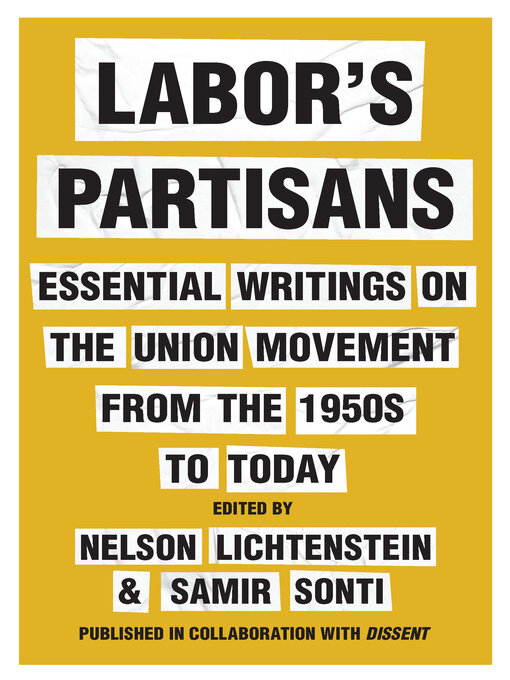In 1954, the American labor movement reached its historic height, with one-third of all nonagricultural workers belonging to a union—and much higher percentages in the nation's key industries. That same year, a group of writers and activists, many with close ties to organized labor, founded Dissent magazine, which quickly became the publishing home for the most important progressive voices on American unions.
Today, at a time of both resurgent union organizing and socialist politics, the need for this rich tradition of ideas is as pressing as ever.
With over twenty-five contributions by some of the nation's most influential progressive voices, Labor's Partisans brings to life a history of labor that is of immediate relevance to our own times. Introduced and edited by leading labor historians Nelson Lichtenstein and Samir Sonti, this essential volume reveals the powerful currents and debates running through the labor movement, from the 1950s to today.
Combining stunning writing, political passion, and deep historical perspective, Labor's Partisans will be a source of ideas and inspiration for anyone concerned with a more just future for working people.


